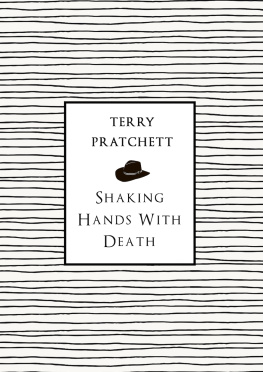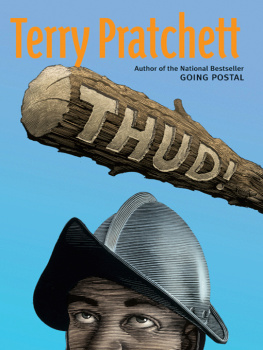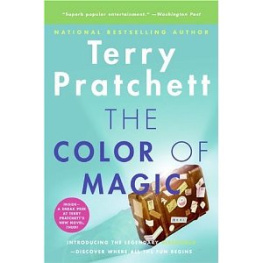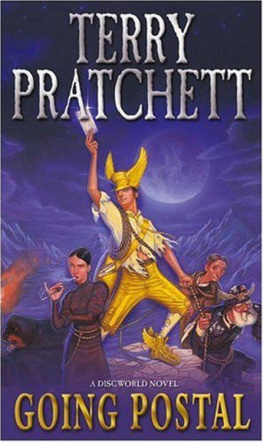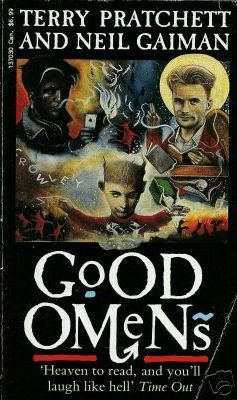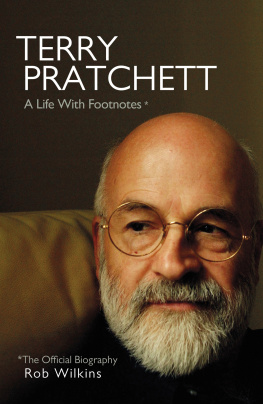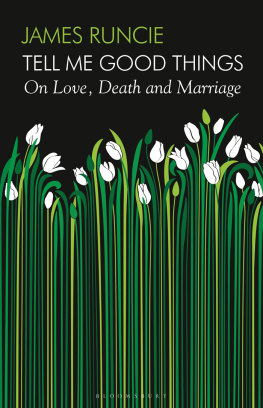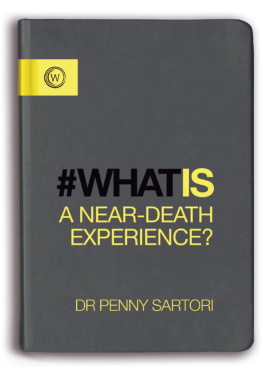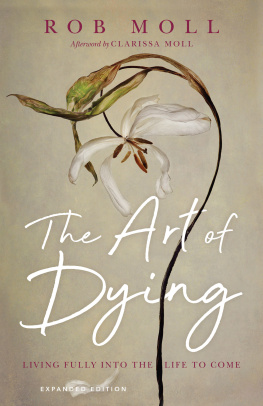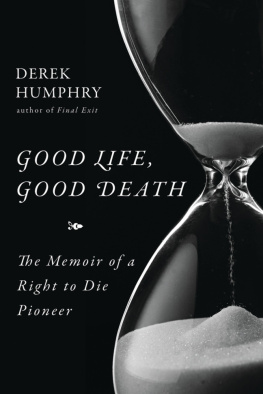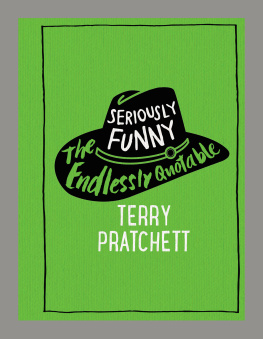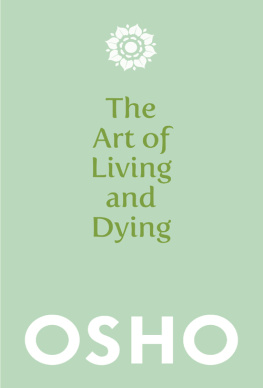Contents
TRANSWORLD PUBLISHERS
6163 Uxbridge Road, London W5 5SA
www.transworldbooks.co.uk
Transworld is part of the Penguin Random House group of companies whose addresses can be found at global.penguinrandomhouse.com

First broadcast on BBC1 in 2010 as The Richard Dimbleby Lecture
First published in A Slip of the Keyboard by Doubleday in 2014
This edition first published in Great Britain in 2015 by Corgi Books
an imprint of Transworld Publishers
Copyright Terry and Lyn Pratchett 2014
Introduction copyright Rob Wilkins 2015
Terry Pratchett has asserted his right under the Copyright,
Designs and Patents Act 1988 to be identified as the author of this work.
A CIP catalogue record for this book is available from the British Library.
Version 1.0 Epub ISBN 9781473540460
ISBN 9780552172776
This ebook is copyright material and must not be copied, reproduced, transferred, distributed, leased, licensed or publicly performed or used in any way except as specifically permitted in writing by the publishers, as allowed under the terms and conditions under which it was purchased or as strictly permitted by applicable copyright law. Any unauthorized distribution or use of this text may be a direct infringement of the authors and publishers rights and those responsible may be liable in law accordingly.
1 3 5 7 9 10 8 6 4 2
Shaking Hands with Death
Introduction by Rob Wilkins
In the autumn of 2009 Terry was approached by the Dimbleby family about the possibility of his delivering the annual televised lecture inaugurated by them four decades ago in memory of Richard Dimbleby. At that time, Terry was filled with a white-hot rage at being diagnosed with a rare form of Alzheimers disease at the ridiculously young age of fifty-nine, and at the lack of choice available to people in his position over how and when to end their suffering. He accepted, and began to write.
Working his way through the first draft of Shaking Hands with Death channelled Terrys fury into something positive: the fury became his inspiration. But Terry was doubtful that what he was writing would actually make it on to television; he was convinced that the BBC would never agree to broadcast a lecture on the subject of death and dying, and the difficulties we have to endure towards the end of our lives. Despite this, instead of tempering his anger, Terry wound up his fury to eleven and pressed on regardless.
Terry had lost the ability to touch-type by this point one of the first casualties of the war against his disease and so he dictated the early drafts of the lecture directly to his computer. We had trained the dictation program, TalkingPoint, to understand Terrys voice and recognize all the unique names and places in his novels; he was overjoyed that it rattled past a Weatherwax and a Vetinari, and secretly thrilled when it stumbled over simple words such as pioneer (which it delightfully transcribed as pie on ear). However, the anger in his voice as he tried to line up his thoughts about what he saw as the misery of end-of-life care was unmistakable, and the software just couldnt cope with the change of tone. Try as he might to get his words on to the page, Terry was unable to express his passion without bellowing the words, so I stepped in and let him shout at me on the keyboard instead.
We first presented what was essentially the text you have here to a kindly BBC producer over cappuccinos in the caf of the National Theatre. While Terry sipped his frothy coffee, the BBC executive read all the way through to the end without stopping, his expression unreadable. And then there was a long pause, followed by a huge smile, and I realized that the BBC were going to allow this lecture after all. Terry had managed his anger in exactly the right way using it to explore unflinchingly how society is going to have to redefine death in an increasingly elderly population; and he had done so in a sympathetic and human way. Anyone who has read one of Terrys novels will know how he could spin the most beautiful sentences and make his craft look effortless it was what made him such a huge success. Now he was using that talent not for another wonderful piece of fiction, not for his own benefit at all, but to deal with a very real issue that we are all, at some point in our futures, going to have to face.
On the morning of 1 February 2010, we arrived at the Royal College of Physicians, the venue for the lecture, to find film crews already waiting on the pavement outside. Interest in what Terry was going to say was mounting. A tense moment followed as rival networks battled for their lunchtime exclusives, but Terry in his customary gentlemanly way spoke to each of them in turn and gave them all something unique.
Terry was due to speak in the colleges magnificent library appropriately, since he was the first novelist to give a Dimbleby Lecture. The librarys oak-panelled walls were lined with dusty old leather tomes, secured behind iron bars. There seemed something poignant about this, all those words kept behind lock and key so they couldnt escape and speak for themselves and here amongst them was Terry, his lecture rolled nonchalantly in his hands. I knew how much effort it had cost him to get those words down on paper.
Now, though, came the next challenge, as the cameras got ready to roll for the first rehearsal. This moment had been causing me great concern. Recently Terry had been finding reading a particular struggle, even when he used hugely enlarged fonts spread across the bank of computer screens in our office. How was he going to deal with autocues and their continuously scrolling type?
Thankfully, Terry had been pondering his enforced limitations too, and he came up with a solution; he suggested to my delight but trepidation that I should read the lecture for him. The BBC agreed so long as he was able to give an introduction, and so we hastily tapped out something suitable. I had spoken for Terry on many occasions before and was soon to read from his latest novel at a packed Sydney Opera House, but this time there was much more at stake. The opportunity to give a Dimbleby Lecture was a once-in-a-lifetime chance and Terrys hard-won words were so important. Would a stunt Pratchett, as Terry termed it, work? We took to the stage. Terry gave his introduction flawlessly and I read the rest of his words with the passion I had heard him put into them during his long hours of writing. There was enough backslapping afterwards for us to realize that this stunt Pratchett approach had worked Terrys words carried weight even when it was not his voice speaking them. And there were still more than six hours left to work on the performance. The lecture was on track.
As it happened, Tony Robinson a good friend of Terrys was at that moment flying back into the country to join us for the lecture. We had emailed Terrys text to him and he read it on a tiny screen in the back of a bumpy taxi ride from Heathrow into central London. When Tony arrived at the library for tea and a catch-up, the producer suggested he read the lecture on stage and give me some pointers. In front of a lighting rig and cameras, Tony read Shaking Hands with Death. It was a masterclass in public speaking. All of the emotion that had driven Terry on to write was delivered with absolute clarity into the hearts of everyone listening. It was clear to us all that this was how Terrys lecture should be heard, and so, when the cameras rolled that evening, Terry delivered his powerful opening paragraphs to a rapt audience and handed over to Tony to read the rest.

